They're growing pines now in cotton soil
Still making boxes for the sons of toil
Still bend your back to pick you food stamps up
Black coffee still comes in a tall white cup
They took the signs down but it's loud and it's clear
You want to eat? Well now, it can't be here
Tell me how long the train's been gone
Tell me again about the dream
Tell me the story of glory hallelujah
And how we're swimming against the stream
More talk of marching on Washington
It never really seems to get things done
Along the way we maybe make good friends
But they can't tell us where the rainbow ends
It's getting more now than just out of reach
And don't go looking down at Howard Beach
Montgomery and Selma - go ask Congress
25 years, change hasn't meant progress
In Chicago you live on the south or the west side
But just like the townships - try moving in outside
Still making boxes for the sons of toil
Still bend your back to pick you food stamps up
Black coffee still comes in a tall white cup
They took the signs down but it's loud and it's clear
You want to eat? Well now, it can't be here
Tell me how long the train's been gone
Tell me again about the dream
Tell me the story of glory hallelujah
And how we're swimming against the stream
More talk of marching on Washington
It never really seems to get things done
Along the way we maybe make good friends
But they can't tell us where the rainbow ends
It's getting more now than just out of reach
And don't go looking down at Howard Beach
Montgomery and Selma - go ask Congress
25 years, change hasn't meant progress
In Chicago you live on the south or the west side
But just like the townships - try moving in outside
Notes:
Train: Symbol for the road to freedom.
Glory hallelujah: a phrase in many black songs that doesn't only express the hope of a solution in Heaven, but also freedom in life; amongst others in the song 'Battle Hymn Of The Republic', also known as 'John Brown's Body'.
Where the rainbow ends:
1. reference to the saying, 'at the end of the rainbow you find gold', transformed by the blacks into, 'you find equality'.
2. allusion to the 'Rainbow Alliance' in which Jesse Jackson, the most popular black politician of the 1980's, tried to organise the disadvantaged minorities. Jackson made several attempts to gain the vice-presidential nomination of the Democratic party, but failed every time.
South Side, West Side: Black ghettos in Chicago.
Townships: Black ghettos in the industrial cities of South Africa.
Train: Symbol for the road to freedom.
Glory hallelujah: a phrase in many black songs that doesn't only express the hope of a solution in Heaven, but also freedom in life; amongst others in the song 'Battle Hymn Of The Republic', also known as 'John Brown's Body'.
Where the rainbow ends:
1. reference to the saying, 'at the end of the rainbow you find gold', transformed by the blacks into, 'you find equality'.
2. allusion to the 'Rainbow Alliance' in which Jesse Jackson, the most popular black politician of the 1980's, tried to organise the disadvantaged minorities. Jackson made several attempts to gain the vice-presidential nomination of the Democratic party, but failed every time.
South Side, West Side: Black ghettos in Chicago.
Townships: Black ghettos in the industrial cities of South Africa.
Contributed by Alessandro - 2010/2/3 - 09:32
×
![]()
Note for non-Italian users: Sorry, though the interface of this website is translated into English, most commentaries and biographies are in Italian and/or in other languages like French, German, Spanish, Russian etc.


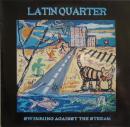
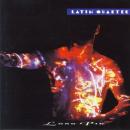
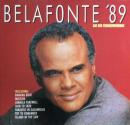


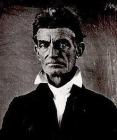
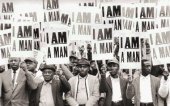
Album "Swimming Against The Stream"
Scritta da Steve Skaith e Mike Jones
The high point of the civil rights movement remains the march on Washington on August 28 1963, which, with 250.000 participants, was the biggest demonstration ever held in the country up to then. During it, Martin Luther King, made his famous 'I I Have A Dream' speech. One of the actions of the Movement were the freedom rides. To break down discrimination in the busses and bus stations, in 1961 a group of black and white demonstrators (mostly from the north) drove together from Washington to New Orleans in a Greyhound bus. The attacks from the opponents of equality culminated in Montgomery, in the State of Alabama, where only the National Guard protected the freedom riders from the violent mob.
In March 1965, in Selma, also in Alabama, a black female demonstrator was murdered by three members of the Ku Klux Klan. In 1987 in Howard's Beach, New York State, a group of young black's suffered a car break down. A gang of white youths chased one of the occupants on to a busy street, where he was hit by a car and killed. This incident was regarded as proof that even in the North racism is still as widespread as before.